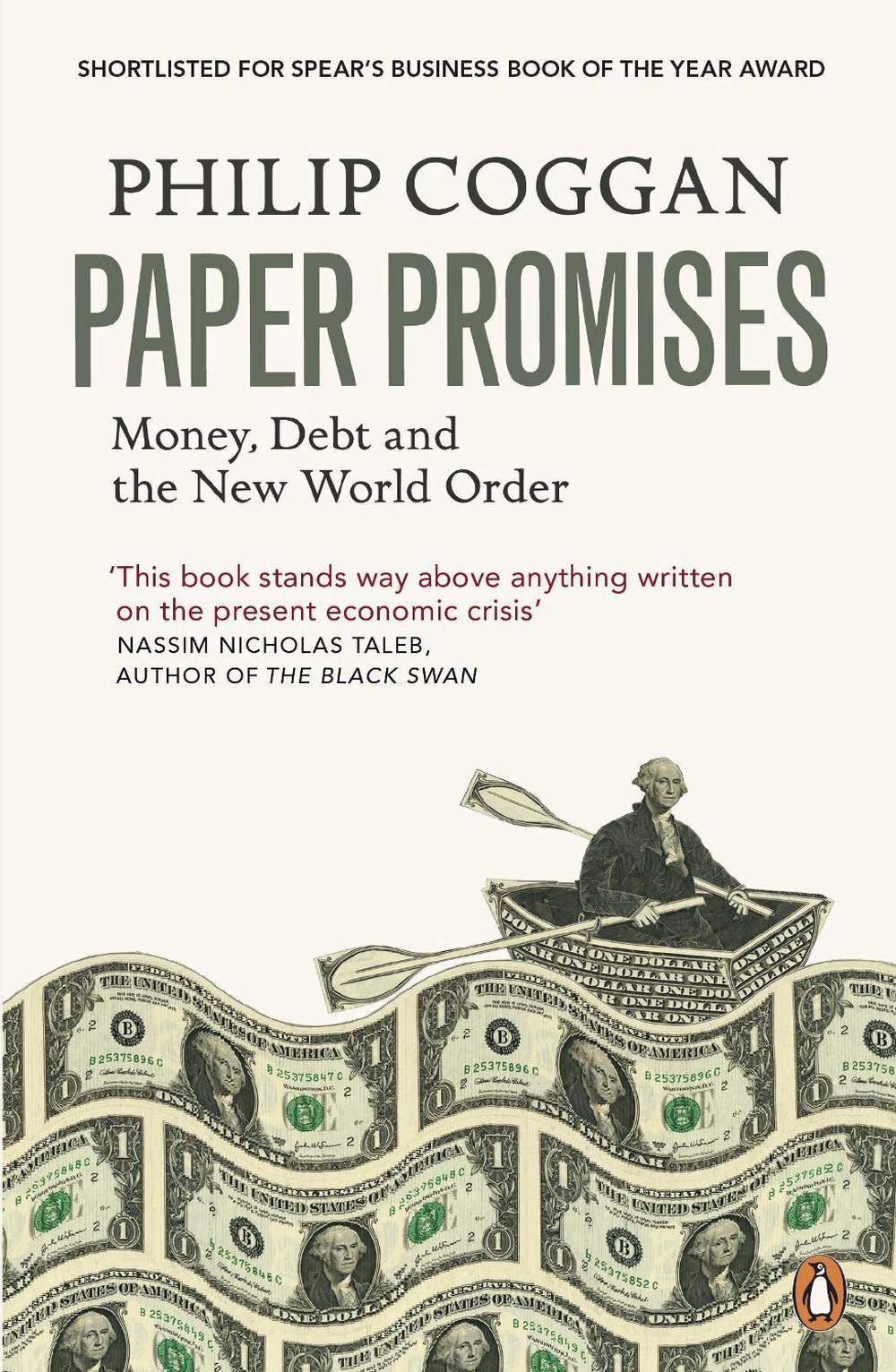
Paper Promises
money, debt and the new world order
$32.08
- Paperback
320 pages
- Release Date
20 November 2012
Summary
Paper Promises: Unveiling the Illusion of Money
What is money, really? If we don’t know, the biggest financial issue of our day won’t go away.
In today’s financial climate, we are all, naturally, obsessed by debt. In almost every aspect of our life we experience it - on our credit cards, mortgages, bank loans, and student loans. But where has this debt come from? How does it work? What is any money really worth? And what promises do we need to believe to keep the whole syste…
Book Details
| ISBN-13: | 9780718192143 |
|---|---|
| ISBN-10: | 0718192141 |
| Series: | Allen Lane |
| Author: | Philip Coggan |
| Publisher: | Penguin Books Ltd |
| Imprint: | Penguin Books Ltd |
| Format: | Paperback |
| Number of Pages: | 320 |
| Release Date: | 20 November 2012 |
| Weight: | 227g |
| Dimensions: | 198mm x 129mm x 20mm |
You Can Find This Book In
What They're Saying
Critics Review
Intriguing
Bold and confident … Coggan covers the terrain with characteristic calmness and objectivity, avoids over-simplification, and laces his arguments with his trademark erudition … The alphabet soup of acronyms, from SIVs to CDO Squareds, is blissfully lacking … Finally, the book is free from the shrieking ideology that afflicts virtually all contemporary debates over money. Indeed, it offers a clear explanation of the fresh ideological divisions that have arisen over how to deal with the crisis … the book should be taken very seriously * Financial Times *This book stands way above anything written on the present economic crisis – Nassim Nicholas Taleb, author of ‘The Black Swan’The most illuminating account of the financial crisis to appear to date … [written] with a lucidity that enables him to convey deep insights without a trace of jargon … [a] thought-stirring book – John Gray * New Statesman *A remarkable book from one of the most respected economics journalists on the planet. Every page brings a fresh insight or a new surprise. A delight – Tim Harford, author of ‘The Undercover Economist’Fascinating and authoritative, with the rigour and depth to satisfy an economist and the accessibility and pace to engage the layperson … If everyone read Coggan’s book we might just be a little more circumspect if and when the next burst of irrational exuberance overtakes the economy * Management Today *A masterful history of financial crises * Independent *By far the best analysis of the “new normal” – David Stevenson * Financial Times *An excellent book … a smart and witty analysis of the current economic storm, set in the context of the history of money – David Wighton * The Times *Coggan is … an exceptional banking and economic historian * Irish Examiner *Coggan traces ‘history’s tug of war between monetary shortage and excess’ in this engaging and timely book about the current financial crisis…. Thoughtful and thorough * Publishers Weekly *
About The Author
Philip Coggan
Philip Coggan was a Financial Times journalist for over twenty years, including spells as a Lex columnist, personal finance editor and economics correspondent, and is now the Capital Markets Editor of the Economist. In 2009 he was awarded the title of Senior Financial Journalist in the Harold Wincott awards and was voted Best Communicator at the Business Journalist of the Year Awards. Paper Promises is his fourth book, and has been shortlisted for the Spears Business Book of the Year Award and longlisted for the Financial Times Goldman Sachs Business Book of the Year Award.
Returns
This item is eligible for free returns within 30 days of delivery. See our returns policy for further details.




